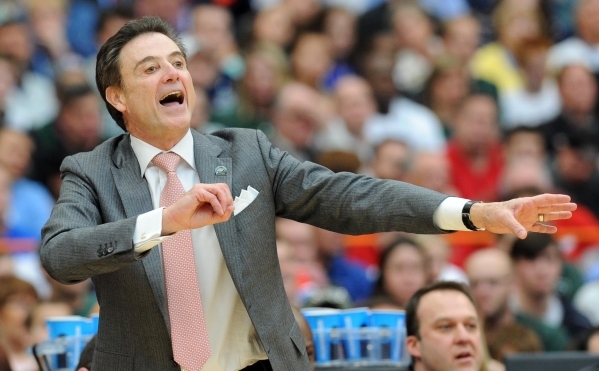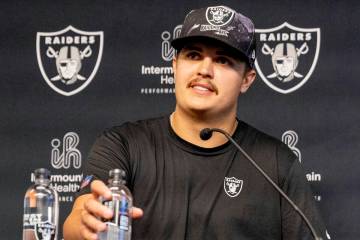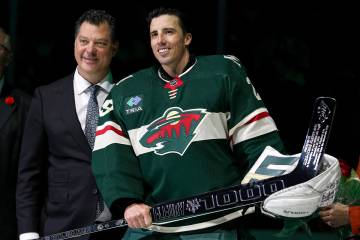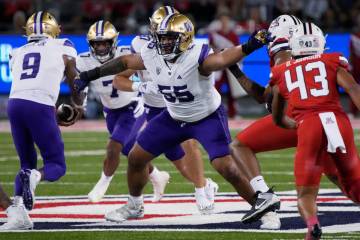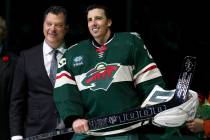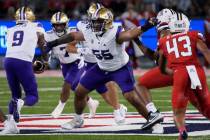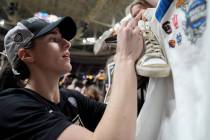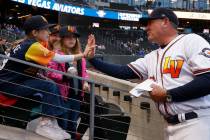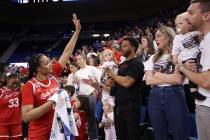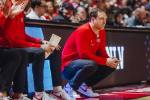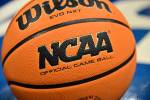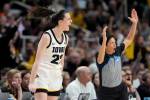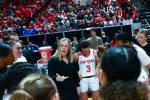Scandals never out of season in college basketball
There is a quote from sportswriter Jonathan Tjarks that goes like this: "Imagine every bad thing you hear about college basketball recruiting. Multiply it by 10. That's 20 percent of how dirty it is."
I think he was being kind.
Practice is again underway for those with legitimate dreams of making a run toward a national championship in March and the hundreds of other programs that, while lacking any sort of chance at such glory, still own those positive thoughts only October can bring. Almost everyone holding a whistle and ball is giddy this time of year.
But they aren't throwing any parties at Southern Methodist and Louisville. Academic fraud. Unethical conduct. Years of strippers and sex and cash changing hands.
It really must be college basketball season.
That, and Roy Williams must really be happy the spotlight is shining elsewhere for now.
Hidden within the scandal that earned SMU a postseason ban and coach Larry Brown a nine-game suspension and the loss of nine scholarships, that now has everyone wearing red across the state of Kentucky condemning a book that details escorts being paid thousands of dollars for having sexual relations with Louisville players and recruits, is this universal truth: College basketball continues to wear the badge of the NCAA's dirtiest sport.
Nothing comes close, altogether amazing when you consider the shenanigans that have occurred across the football landscape over time.
Or at least in the state of Alabama.
The problem is, cheating within college basketball has for a while now resembled a raging wildfire that can't be contained, a combustible act the NCAA has little hopes of suppressing at a high level. Some people try to do things the right way. Some coaches really do despise the thought of compromising themselves.
But such is the minority group.
The NCAA will catch a big fish every once in while — Brown seems especially drawn to bait, given this is the third school that has been stung by NCAA sanctions under his watch — but mostly is left with broken lines and nothing to show for decades of casting.
As the NCAA long ago lost its way by creating a rules manual the size of Kazakhstan and becoming an enormous bureaucratic apparatus that over time forgot its intended mission, college basketball sunk deeper and deeper into the dark shadows of shady business. There is no going back now, because the rewards and riches that come with coaching and delivering certain levels of success to respective schools are too vast and tempting.
Truth is, it's not about coaching any more as it is hoarding as much talent as possible. And with such hauls of skill often come the choice of those coaches recruiting to cheat.
Once the summer grassroots basketball circuit became a wild animal the NCAA could not alone control and cage, any ounce of remaining integrity within the sport died and it became controlled by agents and runners and hangers-on. And, yes, overbearing parents certain they were in possession of the next NBA lottery pick.
Once the high school coach was all but removed from the process years ago, everything changed.
It's a viscous cycle and one far more sophisticated than perhaps believed by the average fan. Coaches have found countless ways beyond the antiquated cash-in-a-paper-bag offering to win recruiting battles.
Pre-paid debit cards are so much more 2015.
The more players an assistant coach delivers, the more he will be compensated, meaning the more likely he is to develop inappropriate relationships with those handlers and parents who most have the prospect's ear.
The lengths some assistants go to land a kid get really weird and, well, pathetic at times.
But, always, they carry on.
It just can't be policed as much as it should be. The NCAA can't keep up. Even something as seemingly harmless as an unofficial visit by a recruit has become one of the more abused tools employed, given it's nearly impossible to trace the money that might change hands between a coach and a kid's handler or parent for expenses.
But how much does and should the head coach know about what his assistants are doing? Brown insists he didn't lie to NCAA investigators regarding multiple infractions tied to academic fraud, saying only he wished he had done more to prevent the misdeeds of staffers.
Louisville coach Rick Pitino has denied knowing anything about allegations that a former staffer paid for recruits and players to have sex with escorts over a four-year period.
Williams has denied at North Carolina any knowledge or involvement with the school's long-running academic scandal that reportedly involved some of his players.
Jim Boeheim at Syracuse is appealing his nine-game conference suspension that stems from violations of improper benefits to players and academic improprieties, and that he failed to promote of a culture of compliance and properly monitor his staff.
And the University of Tennessee has gone through four coaches since 2011, including two who have been ousted because of major recruiting violations.
Yeah. A lot of denying goes on.
Here's the thing: A head coach either knows what is happening or doesn't, and the latter is far worse. Not paying attention is a graver sin than being involved with rules violations.
There is just no going back. The game makes too much money for all involved, and that includes an NCAA and the billions of dollars it has drawn off a certain tournament each March.
The best you can hope for as a fan is that when the NCAA casts a line in your favorite team's direction, those who run things have done a good enough job of hiding all improprieties that it will snap in half before any real bites occur.
It's a dirty business, man, and has been for some time.
We didn't need any book to learn that.
— Ed Graney can be reached at egraney@reviewjournal.com or 702-383-4618. He can be a heard on "Seat and Ed" on Fox Sports 1340 from 2 p.m. to 4 p.m. Monday through Friday. On Twitter: @edgraney



